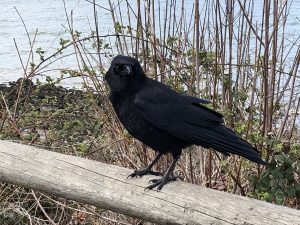Music and Writing Craft

What becomes possible when music infuses your writing craft?
“An ordinary life is full of musical rhythms, episodes, and cadences. The themes of our work, play, families, and geographies are like melodies that come and go as though in an elaborate fugue” (Thomas Moore). Why do so many writers forget to include musical references in their prose and poetry? I suspect that most writers simply do not think about the power of music when writing. If writers are not ardent band fans, or musically inclined, they may believe music is irrelevant to written text.
Consider a moment, the scene in a dentist’s office where the patient is reclined with the obligatory paper bib. The dentist hums unwittingly to the song on the speakers above the dental chair as they perform the tooth extraction. How does the scene change if the dentist sings “Another one bites the dust, duh, duh, duh” by Queen, “Do you really want to hurt me” by Culture Club or “King of Pain” by The Police?
Recall a recent TikTok or Facebook video that captured too much of your time and attention. Was there musical accompaniment to the antics? Or consider a famous movie without the accompanying score: James Bond might be sexy but would you watch 120 minutes of car chases and rooftop pursuits if the music didn’t enthrall? Notice that subtitles, regardless of the language spoken include references to music, because music – even when you cannot hear it- is viewed as integral to the action on the screen.
Natalie Welsh, the editor of Syncopation Literary Journal, is a musician and a writer who founded the journal after noticing how intricately connected stories and music are in our daily lives. The journal features fiction, non-fiction, flash and poetry in journal, blog, and literary contest formats. They will be seeking more submissions this fall. Watch a recent interview entitled Music and Literature: Gateways to the Soul with Natalie Welsh on Susan Scott’s web series, Life Story Writing. Natalie references timely and classic links between music and writing on her Instagram. Find her at @syncopationlit
It is hard not to write well when accompanied by live music. BC Writers hosts Writing Sprint Serenade: Live Musical Inspiration with pianist Andrew Sims monthly. I value how Andrew arranges his sets with careful attention to how music can enhance creative flow. He varies tempo, style, and harmonic texture, and in so doing he references the classic arc of great stories. There is something je ne sais quoi about not knowing what comes next (as opposed to a familiar curated playlist). The unexpected synchronicity between pen and key helps to dislodge my most stubborn writing blocks. Look for the next serenade with Andrew Sims.
There are a multitude of ways to welcome music into your writing practice. Try these:
- Determine your character’s favourite song. Does the song pump them up or bring solace to them? Even if the song is never mentioned in the text, knowing your character more intimately in this way can inform your writing. Try listening to your character’s favourite music genre while writing.
- Create a playlist for your current writing project. Tune in to how your writing flows or stalls with music. Edit songs that do not compliment your process like songs that distract you or music that changes your mood dramatically in the wrong direction. Bryan Mortenson, BC Writer’s Executive Director, favours listening to film scores while writing.
- Attend to the period and geographical location of your works when referencing music. What happens if your novel is set in the future? Or if your character fancies themselves a throwback to the previous generation’s music? Novelist Lee Child provides this insight into his larger-than-life protagonist Jack Reacher, “I was leaning up in my corner running a Bobby Bland number through my head. An old favourite. It was cranked up real loud…Bobby Bland sings it in G major”. Go back to a scene you have previously written and experiment with melody and lyrics.
- Play with background sounds, like in the dentist’s office scene above. Note that references to music work best when care is taken to consider the demographics of your reader. Done poorly the references can trigger a cringe response. Done well the musical references help the reader recognize themselves in your characters and feel at home in the setting.
- In poetry where every word is prized for rhythm and meaning, the reader feels and imagines differently in response to specific sound cues. For example, try using only one word to describe birdsong. Notice how precisely words like – caws, squawks, warbles, tweets, chatters or trills- evoke different pictures in our minds. Birdsong and indeed all musical references enhance your text with precision.
I will leave you with a question, as I swing out to the heavenly musings of Israel “IZ” Kamakawiwoʻole strumming on his ukulele, “Somewhere over the Rainbow”:
How do you attend to music, and how does music attend to you in your writing?
#authorlife, #autoethnography,
Notes:
The Education of the Heart, Thomas Moore, HarperCollins, 1996, New York, New York
Reacher: Killing Floor, Lee Child, a Jove Book, Berkley, Penguin Random House, 1997